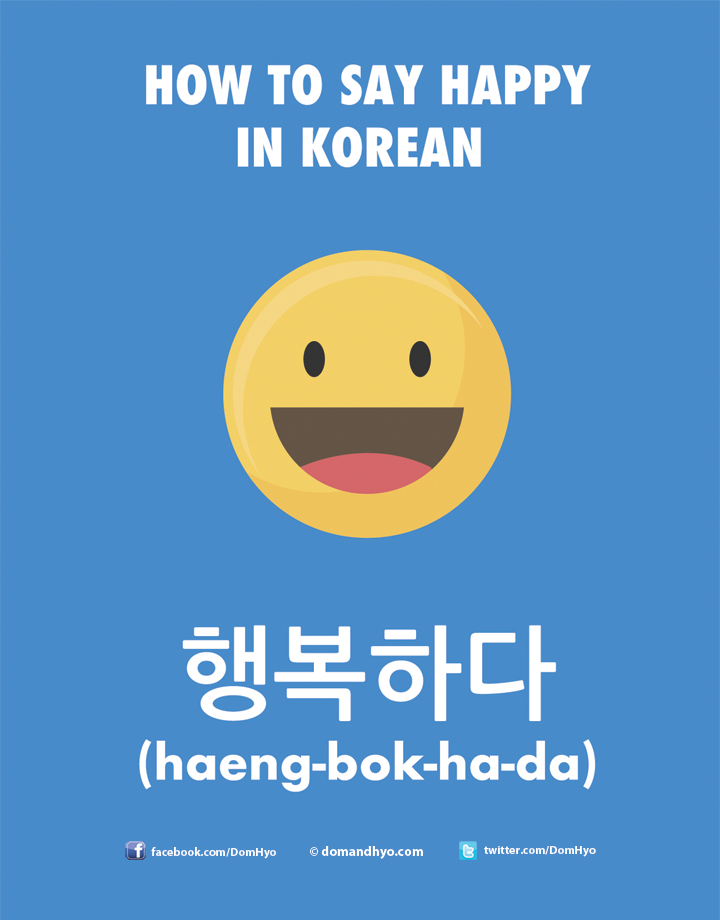
Learning how to express your emotions is a cornerstone of learning a language. So how would you express the fact that you are happy in Korean? Well there are actually two ways of expressing this emotion.
For starters, let’s learn about the adjective 행복하다. This is the most common form of the word happy you will come across. You will conjugate this into other forms when talking with others:
행복해요. (haeng-bok-hae-yo) = I am happy.
This the polite form that you can use with mostly everyone. If you were talking to someone older or in a higher position than you at your job, you would use a higher form of politeness:
행복합니다. (haeng-bok-ham-ni-da) = I am happy.
Now for the casual form you would use with close friends and people younger than you, you would drop the ‘요’:
행복해 (haeng-bok-hae) = I am happy.
Simple right?
The word 행복 by itself can also be translated as happiness.
Now what if you wanted to ask someone if they are happy?
Formal: 행복하세요? (haeng-bok-ha-se-yo) = Are you happy?
Polite: 행복해요? (haeng-bok-hae-yo) = Are you happy?
Informal: 행복해? (haeng-bok-hae) = Are you happy?
There is another form of happy that you can use and that is 기쁘다 (gi-ppeu-da). While not as commonly used as 행복하다, it is still used enough where you should be familiar with it. There is a slight difference between the two. 행복하다 means a feeling of general happiness. You’re happy with life, things are going good, and you feel great!
기쁘다 is used as happiness towards an upcoming event or situation. For for example you’re excited about meeting your friends or you have a date that you’ve been looking forward to. Think of it like saying you’re excited or glad to be in a certain moment or situation. Using this word follows the same rules as above in terms of politeness.
Let’s start with the formal version:
기쁩니다 = (gi-ppeum-ni-da)
Now the polite version:
기뻐요 = ( gi-ppeo-yo)
And finally the informal version:
기뻐 = (gi-ppeo)
And there you have it! Are you feeling happy today? Check out our post on emotions and feelings to find other ways to express how you feel.
